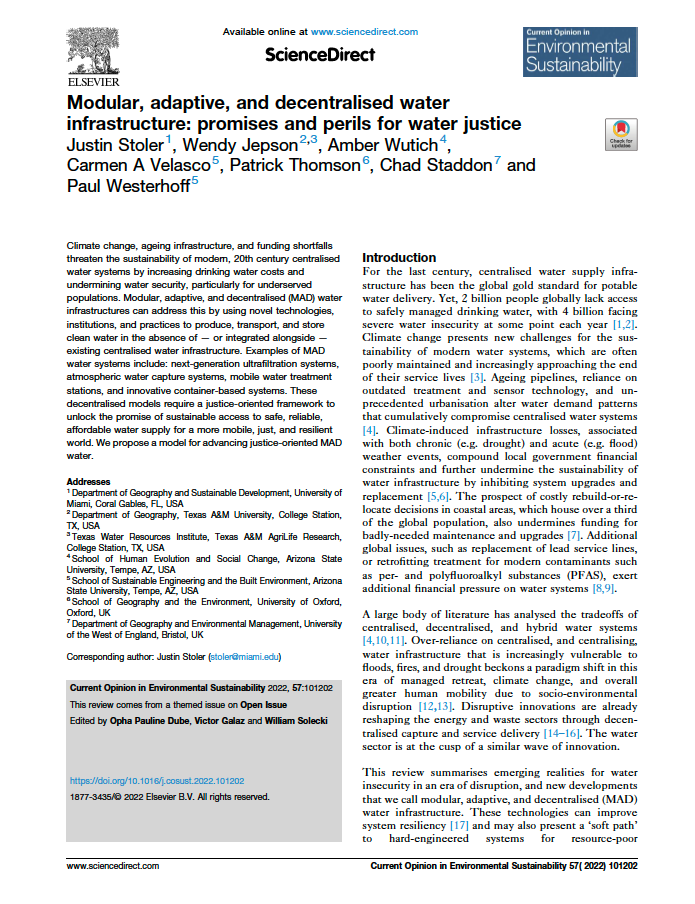Authors: Justin Stoler, Wendy Jepson, Amber Wutich, Carmen A. Velasco, Patrick Thomson, Chad Staddon, & Paul Westerhoff.
Climate change, ageing infrastructure, and funding shortfalls threaten the sustainability of modern, 20th century centralised water systems by increasing drinking water costs and undermining water security, particularly for underserved populations. Modular, adaptive, and decentralised (MAD) water infrastructures can address this by using novel technologies, institutions, and practices to produce, transport, and store clean water in the absence of — or integrated alongside — existing centralised water infrastructure. Examples of MAD water systems include: next-generation ultrafiltration systems, atmospheric water capture systems, mobile water treatment stations, and innovative container-based systems. These decentralised models require a justice-oriented framework to unlock the promise of sustainable access to safe, reliable, affordable water supply for a more mobile, just, and resilient world. We propose a model for advancing justice-oriented MAD water.
A collaboration with the HWISE Research Coordination Network.

